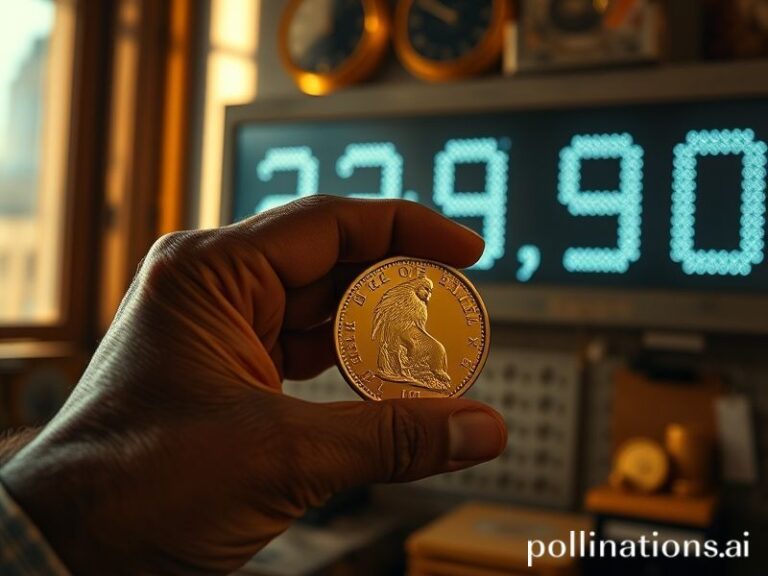senator wyden
If you squint at a world map long enough, the United States looks less like a republic and more like a giant, slightly frayed Wi-Fi router that occasionally forgets its own password. Somewhere near the blinking “SENATE” light sits Ron Wyden—Oregon’s senior senator, professional committee chair, and improbable apostle of digital privacy—busily trying to keep the rest of the planet from hacking the firmware. From Brussels to Bangalore, the question is no longer whether Uncle Sam will share your browser history with Five Eyes, but whether Wyden will let him do it with a straight face.
Wyden’s latest crusade—Section 702 reform—carries the thrilling subtitle “How I Learned to Stop Worrying and Love End-to-End Encryption.” In theory, 702 lets the NSA vacuum up foreigners’ emails without a warrant; in practice, it vacuums up everything, including your aunt’s sourdough blog. The European Union, having turned GDPR into a continent-wide contact sport, watches this debate the way one watches a neighbor juggle chainsaws: equal parts horror and reluctant respect. If Wyden pulls off even modest reforms, the EU might finally admit that American privacy law is more than a polite suggestion scribbled on a napkin at Davos.
Meanwhile, the Global South has skin in the game too. Kenya’s fintech boom, Mexico’s cash-transfer apps, and Vietnam’s e-commerce miracle all run on U.S. cloud infrastructure. Every time Wyden harangues intelligence chiefs about “incidental collection,” a Nairobi coder breathes easier; every time he fails, an Indonesian minister quietly orders another Huawei server. International markets treat Wyden’s speeches like tea leaves for the next tech cold-war pivot. Traders in Singapore have been known to short Palantir whenever the senator uses the phrase “dragnet surveillance” more than twice in a single hearing.
Of course, Wyden is not exactly Che Guevara with better Wi-Fi. He’s been in Washington since the floppy disk was cutting-edge, which means he’s mastered the art of saying “no” while voting “maybe.” Critics note that for all his fiery rhetoric, the surveillance state has, like a teenager’s browser cache, only grown more incriminating with age. Still, in a town where bipartisanship usually means agreeing to bomb something, Wyden’s alliances are admirably weird: Rand Paul on one shoulder, Elizabeth Warren on the other, and a faint echo of Edward Snowden humming the Internationale in the background.
The cynical read—popular from Berlin to Bogotá—is that Wyden is America’s way of outsourcing guilt. Let the guy from Oregon scream into the C-SPAN void so the rest of the world can pretend somebody Up There still believes in civil liberties. It’s geopolitical theater, but with popcorn flavored by Schrems II court rulings and TikTok bans. The optimistic read, whispered in encrypted Signal chats from Kyiv to Cape Town, is that Wyden is the last adult in a room filling up with generative-AI snake oil. When he forces the NSA to admit how many times it Googled “Angela Merkel phone number,” even the Kremlin cracks a smile.
And then there’s the China variable. Beijing’s diplomats love quoting Wyden at U.N. summits, proof that American hypocrisy comes with its own open-source documentation. Yet privately they worry: if the U.S. ever genuinely reins in bulk collection, the moral high ground won’t be a convenient sand dune anymore—it’ll be fortified real estate. That possibility keeps Huawei’s PR department awake at night and fuels late-night shisha debates in Dubai about whether digital sovereignty is worth the bandwidth throttling.
In the end, Senator Wyden matters internationally for the same reason a broken clock is useful: twice a day, he tells the truth with subpoena power. The rest of the time he’s a reminder that empires rarely fall; they just update their privacy policies. Whether you’re a dissident in Belarus routing around censorship or a banker in Luxembourg hiding taxable enthusiasm, the fate of your metadata is partly decided by a bespectacled 74-year-old who still uses a BlackBerry “because the keyboard feels honest.” Sleep tight, planet Earth; your packets are in bipartisan hands.







